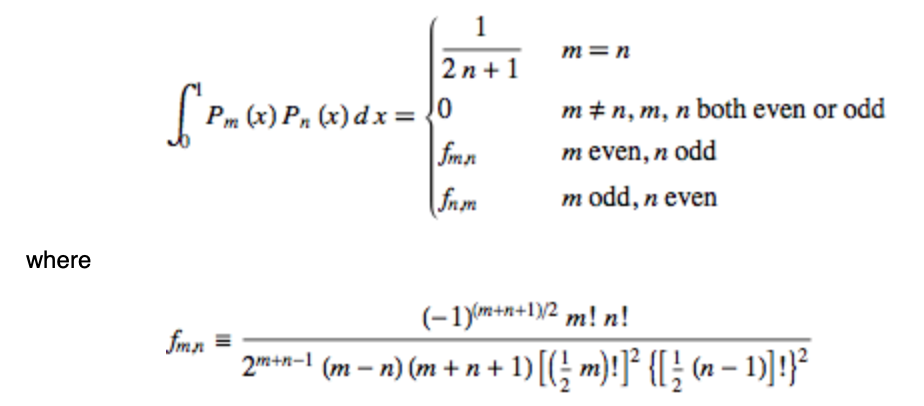I need to compute the following integral $$ I_{n,m} := \int_0^1 P_n(x) P_m(x) \; \mathrm{d}x $$ where $P_n$ is the Legendre polynomial.
For an even sum $n+m=2l$ it is easy to show that $$ I_{n,m} = \frac{1}{2} \int_{-1}^1 P_n(x) P_m(x) \; \mathrm{d}x = \delta_{n,m} \frac{1}{2n+1} \,. $$
A length calculation arises for an odd sum $n+m=2l+1$. Has someone finished the calculation?

